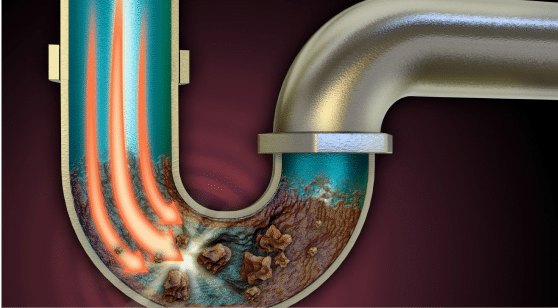It is generally recommended to have your main drain cleaned every one to two years, depending on the size of your household and the amount of usage your drain receives. Factors that can increase the frequency of cleaning include having a large number of people living in the home, frequent use of the drain (such as for laundry or dishwashing), and the presence of trees on your property that may shed leaves and roots into the drain.
If you are unsure about the frequency of cleaning your main drain, it is a good idea to consult a professional plumber. They can assess your drain system and give you a recommendation based on the specific needs of your home.
There are several steps you can take to help keep your drain lines clean and prevent clogs:
Use a drain cover or strainer to catch hair and other debris before it goes down the drain. This can be especially useful in sinks and showers.
Avoid flushing large or non-biodegradable items down the drain, such as sanitary products, wipes, and grease. These items can cause blockages in your drain lines.
Use a low-flow toilet to help reduce the amount of water and waste that goes down the drain.
Avoid pouring grease or oil down the drain. These substances can solidify and cause blockages in your drain lines. Instead, pour them into a container and dispose of them in the trash.
Run hot water down the drain regularly to help flush out any debris that may have accumulated in the drain lines.
Consider using a natural drain cleaner or enzyme-based product to help break down and remove any organic matter that may be clogging your drain lines.
Regularly clean the drain cover or strainer to prevent debris from accumulating and causing blockages.
By following these steps, you can help keep your drain lines clean and prevent clogs. If you are experiencing persistent drain problems, it may be necessary to have a professional plumber inspect and clean your drain lines.
There are several things you should avoid putting down your drains to prevent clogs and other problems:
Non-biodegradable items: These include items such as wipes, sanitary products, and plastic bags, which do not break down and can cause blockages in your drain lines.
Grease and oil: These substances can solidify and cause blockages in your drain lines. Instead, pour them into a container and dispose of them in the trash.
Large or fibrous items: These include items such as corn husks, artichokes, and celery, which can cause blockages in your drain lines.
Hard or sharp objects: These include items such as bones, glass, and metal, which can damage your drain lines and cause blockages.
Chemicals: Many household cleaners and other chemicals can be harmful to your drain lines and the environment. Avoid pouring them down the drain, and instead, dispose of them according to the manufacturer’s instructions.
By avoiding these items and only flushing biodegradable materials down your drains, you can help prevent clogs and other problems with your drain lines. If you are unsure about whether an item is safe to put down your drain, it is a good idea to consult a professional plumber or refer to the manufacturer’s instructions.
DIY drain cleaning can be safe for your plumbing system if done properly, but it is important to be careful and follow the instructions provided with the cleaning product you are using. Some products can be harsh and may damage your plumbing if used incorrectly.
If you are using a chemical drain cleaner, be sure to wear protective clothing, including gloves and goggles, to avoid contact with the product. Follow the manufacturer’s instructions carefully, including any precautions or warnings listed. If you are using a natural or enzyme-based drain cleaner, these products are generally safer for your plumbing, but it is still important to follow the instructions provided.
If you are unsure about how to safely clean your drain, or if you are experiencing persistent drain problems, it is a good idea to consult a professional plumber. They have the knowledge and experience to safely and effectively clean your drains and identify any underlying problems that may need to be addressed.

OUR CLIENT
TESTIMONIALS




REQUEST A QUOTE